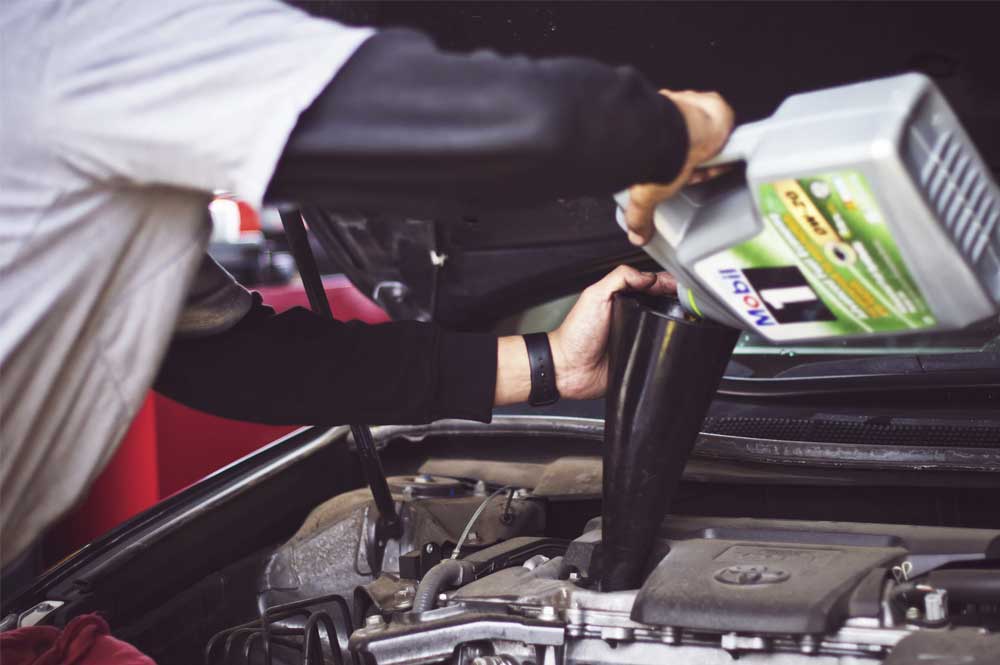Servicing and Maintaining a Car: Everything you need to know


If you’ve just bought your very first car or maybe have had the luxury of a maintained company car, you might be forgiven for the lack of knowledge you have on what responsible car owners need to know. We aim to steer you through the world of car servicing and maintenance to arm you with everything you need to know.
As a responsible car owner, it’s your responsibility to keep your vehicle regularly serviced and maintained. Whilst it’s not a legal requirement to regularly service your car, it is highly recommended and benefits both you and the wider general public:
This really depends on how many miles you drive. Car manufacturers recommend that servicing a vehicle should happen every 12 months or every 12,000 miles, whichever comes first. More modern cars feature a self-diagnostic system that will alert you to when a service is due.
Generally, interim services are carried out on vehicles that clock higher mileages. For example, driving 20,000 miles a year would benefit from two interim services. A full service is generally good for those who drive more moderately and is required after 12 months or after every 12,000 miles driven depending on which comes first.
Interim Service: Recommended after six months or after every 6,000 miles driven, but what an interim service offers will differ between garages, so it’s always worth checking with the garage what you are getting, before booking. An interim service will typically include an oil change with some additional checks and essential maintenance, such as faulty lights, checking tyres for wear, and leaky hoses. They will also top up your car’s fluids, including coolant (water), brake and power steering fluid if required. Some garages may check the brake pads’ condition, the condition and tension of your vehicle’s fan, alternator and auxiliary drive belts, other garages may not.
Full Service: Recommended after 12 months or after 12,000 miles driven and ideal for drivers doing lower annual mileages who only need to service their cars once a year. A full service includes a broader range of checks and service part replacements than an interim service. Our list below gives an idea on the scope of tasks that a full service includes which isn’t exhaustive:
| Oil & Filter Change | Air Filter Replaced | Fuel Filter Replaced
for Diesel Engines |
| Spark Plugs Replaced for Petrol Engines | Extensive Checks for Leaks, Damage & Wear | Brakes Checked |
| Wheel Bearings Excessive Wear Check | Brake Cylinders, Pipes & Hoses checked | Suspension Checked |
| Clutch Operation Check for Manual Cars | Handbrake Operation Checked & Adjusted if required | Brake Fluid Tested & Replaced if required |
| Reset Service Light | Tyres: Wear
& Damage Check |
Exhaust System checked for Corrosion, Damage or Leaks |
The short answer is yes, you can. Unless you’re a skilled grease monkey, the anticipation of paying good money to get your car serviced is seldom appealing and for many of us usually feels like you’ve paid out a lot of money to get the engine running a little cleaner and more efficient. Many people will be capable of carrying out a basic service regardless of the complex electronics that many modern cars now have. What happens under the bonnet is still mechanical and manageable for many.
You do need to consider a couple of points before embarking on a service and maintenance regime. Firstly, if your car has a fully stamped service history up until now, you could impact the vehicle’s value in the future. Even if you’re a fully accomplished mechanic, there is value on those service stamps. Secondly, you need to consider if you have the tools and capability to undertake the service and the location. Most jobs are relatively straightforward, possessing a little know-how and common-sense beneficial, and you’ll need somewhere to undertake the task as working on a car on the road is illegal.
There isn’t a definitive list of which parts are serviceable, but some items will benefit from replacement and others should be inspected for wear and replaced if necessary. The essential elements of a car service would include:
You can then add on to this depending on your budget and when other elements were replaced before. The following items are all parts that will degrade, wear out and generally affect the vehicle’s performance but generally don’t need replacing at every service:
If you don’t regularly service your vehicle, then it’s very likely the performance will deteriorate. Servicing your car is the best way to ensure that everything is working efficiently. If you continue to drive a car with low fluid levels or don’t change the oil regularly, you can severely damage the engine. By regularly servicing your vehicle:
Absolutely you can. No rule says you have to use the dealer to get your car serviced if it’s under warranty. However, before you run eagerly to call your local garage, you need to ensure that wherever you take it, they are warranty-approved and will use warranty-approved parts. Dealerships will be only too happy to void any claims made against them if non-genuine parts are used. If you have any doubt, speak with your dealership first to ensure you don’t invalidate your warranty.
The cost of a full service currently ranges between £130 right up to £300. The average price of a full car service in the UK at the moment is, therefore, around £150. It’s always advisable to call several different garages, including dealerships before making your choice. Whilst it’s common to think local garages will always be cheaper, dealerships can sometimes be competitive so are still worth including when you’re ringing around for quotes. And don’t forget to ask what’s included in the price!
Absolutely. As a responsible car owner, waiting 12 months or even six months for a car service is a long time, it’s good practice to be regularly doing necessary checks including:



